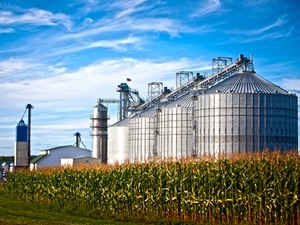Launched by Minister for Agriculture, Fisheries and Forestry John McVeigh on May 23, the Agricultural Values Assessment tool is the latest step in the government’s promise to support agriculture as one of the four pillars of the economy.
“The Queensland government completed the state-wide Land Audit in May last year which identified land that is important to current and future agricultural production,” Mr McVeigh explained.
“We have now developed the Agricultural Values Assessment online tool to cut through about 800 pages of information and generate simple, informative reports for an area of interest selected by a potential investor.”
The 2013 agricultural land audit was initiated as part of the government’s goal to double the agriculture, fisheries and forestry industries by 2040. This includes a commitment to grow food production twice as large within the same period.
By using the online assessments tool, farmers, investors and government bodies can gather in-depth information on relevant pockets of land. For example, the audit covers any potential legislation that may impact on the ability to create the necessary infrastructure to support agribusiness.
The development of this tool aims to help Queensland stakeholders in the agriculture industry to better plan for the future of food and fibre production. Covering all twelve Queensland statutory regional planning areas, the audit includes information on broadacre cropping, grazing, plantation forestry and many other sectors.
For each region, the audit contains an agricultural economic profile, and identifies the strengths, weaknesses, opportunities and threats for agricultural development.
“This tool will be useful for agribusiness investors looking to invest in agriculture in a particular region or for farmers looking to expand their businesses,” Mr McVeigh said. “It will be essential in assisting investors with due diligence assessments and decision making.”
Business owners and investors interested in expanding production across Queensland are encouraged to access information through the assessments tool. Detailed reports are offered free of charge and can be requested by filling out a short request form.
“The user is emailed their customised report in less than an hour after the request is submitted online, providing up-to-the-minute information,” said Mr McVeigh.
Employers considering expanding their agriculture business may also want to invest in an apprenticeship outsourcing solution to help access the talent needed to meet growing production and demand.
By Leanne de Toerkenczy, Public Relations Coordinator

